


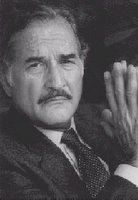

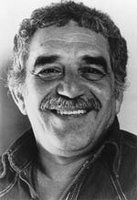

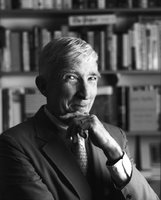
Vargas Llosa, Grass, Saramago, Fuentes,
Goytisolo, García Márquez, Eco, Updike.
Pamuk empezó a ser juzgado ayer (aunque ha habido un aplazamiento tras la primera audiencia), con el riesgo de pasar entre seis meses y tres años en prisión por haber dicho que los turcos tenían en su conciencia la culpa del genocidio armenio de la segunda década del siglo veinte.
La carta suscrita por célebres colegas suyos a la que aludí hace unos días es breve y está firmada únicamente por los ocho nombres mencionados (VLL, Grass, Saramago, Fuentes, Goytisolo, GGM, Eco, Updike), lo que, en cierta manera, la hace más impresionante. Es cierto, sin embargo, que es una carta moderada, como consecuencia, quizá, de lo estrecho de las coincidencias políticas entre sus suscriptores.
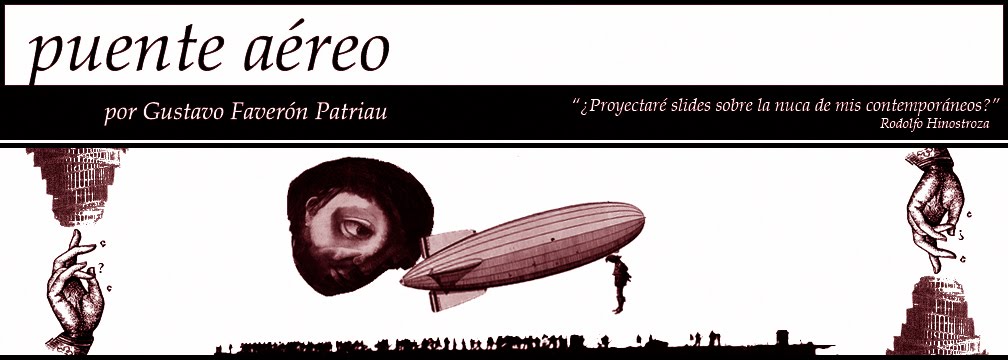



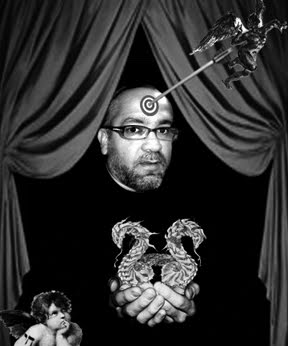






3 comentarios:
Gustavo, un solo comentario: tu post dice que Pamuk tiene "el riesgo de pasar entre seis meses y medio año en prisión". Plop!
Esa es la prueba de que el juicio está arreglado...
Aunque en inglés, vale la pena compartir este texto de Pamuk publicado en The New Yorker.
COMMENT
ON TRIAL
by Orhan Pamuk
Issue of 2005-12-19
Posted 2005-12-12
In Istanbul this Friday—in ?i?li, the district where I have spent my whole life, in the courthouse directly opposite the three-story house where my grandmother lived alone for forty years—I will stand before a judge. My crime is to have “publicly denigrated Turkish identity.” The prosecutor will ask that I be imprisoned for three years. I should perhaps find it worrying that the Turkish-Armenian journalist Hrant Dink was tried in the same court for the same offense, under Article 301 of the same statute, and was found guilty, but I remain optimistic. For, like my lawyer, I believe that the case against me is thin; I do not think I will end up in jail.
This makes it somewhat embarrassing to see my trial overdramatized. I am only too aware that most of the Istanbul friends from whom I have sought advice have at some point undergone much harsher interrogation and lost many years to court cases and prison sentences just because of a book, just because of something they had written. Living as I do in a country that honors its pashas, saints, and policemen at every opportunity but refuses to honor its writers until they have spent years in courts and in prisons, I cannot say I was surprised to be put on trial. I understand why friends smile and say that I am at last “a real Turkish writer.” But when I uttered the words that landed me in trouble I was not seeking that kind of honor.
Last February, in an interview published in a Swiss newspaper, I said that “a million Armenians and thirty thousand Kurds had been killed in Turkey”; I went on to complain that it was taboo to discuss these matters in my country. Among the world’s serious historians, it is common knowledge that a large number of Ottoman Armenians were deported, allegedly for siding against the Ottoman Empire during the First World War, and many of them were slaughtered along the way. Turkey’s spokesmen, most of whom are diplomats, continue to maintain that the death toll was much lower, that the slaughter does not count as a genocide because it was not systematic, and that in the course of the war Armenians killed many Muslims, too. This past September, however, despite opposition from the state, three highly respected Istanbul universities joined forces to hold an academic conference of scholars open to views not tolerated by the official Turkish line. Since then, for the first time in ninety years, there has been public discussion of the subject—this despite the spectre of Article 301.
If the state is prepared to go to such lengths to keep the Turkish people from knowing what happened to the Ottoman Armenians, that qualifies as a taboo. And my words caused a furor worthy of a taboo: various newspapers launched hate campaigns against me, with some right-wing (but not necessarily Islamist) columnists going as far as to say that I should be “silenced” for good; groups of nationalist extremists organized meetings and demonstrations to protest my treachery; there were public burnings of my books. Like Ka, the hero of my novel “Snow,” I discovered how it felt to have to leave one’s beloved city for a time on account of one’s political views. Because I did not want to add to the controversy, and did not want even to hear about it, I at first kept quiet, drenched in a strange sort of shame, hiding from the public, and even from my own words. Then a provincial governor ordered a burning of my books, and, following my return to Istanbul, the ?i?li public prosecutor opened the case against me, and I found myself the object of international concern.
My detractors were not motivated just by personal animosity, nor were they expressing hostility to me alone; I already knew that my case was a matter worthy of discussion in both Turkey and the outside world. This was partly because I believed that what stained a country’s “honor” was not the discussion of the black spots in its history but the impossibility of any discussion at all. But it was also because I believed that in today’s Turkey the prohibition against discussing the Ottoman Armenians was a prohibition against freedom of expression, and that the two matters were inextricably linked. Comforted as I was by the interest in my predicament and by the generous gestures of support, there were also times when I felt uneasy about finding myself caught between my country and the rest of the world.
The hardest thing was to explain why a country officially committed to entry in the European Union would wish to imprison an author whose books were well known in Europe, and why it felt compelled to play out this drama (as Conrad might have said) “under Western eyes.” This paradox cannot be explained away as simple ignorance, jealousy, or intolerance, and it is not the only paradox. What am I to make of a country that insists that the Turks, unlike their Western neighbors, are a compassionate people, incapable of genocide, while nationalist political groups are pelting me with death threats? What is the logic behind a state that complains that its enemies spread false reports about the Ottoman legacy all over the globe while it prosecutes and imprisons one writer after another, thus propagating the image of the Terrible Turk worldwide? When I think of the professor whom the state asked to give his ideas on Turkey’s minorities, and who, having produced a report that failed to please, was prosecuted, or the news that between the time I began this essay and embarked on the sentence you are now reading five more writers and journalists were charged under Article 301, I imagine that Flaubert and Nerval, the two godfathers of Orientalism, would call these incidents bizarreries, and rightly so.
That said, the drama we see unfolding is not, I think, a grotesque and inscrutable drama peculiar to Turkey; rather, it is an expression of a new global phenomenon that we are only just coming to acknowledge and that we must now begin, however slowly, to address. In recent years, we have witnessed the astounding economic rise of India and China, and in both these countries we have also seen the rapid expansion of the middle class, though I do not think we shall truly understand the people who have been part of this transformation until we have seen their private lives reflected in novels. Whatever you call these new élites—the non-Western bourgeoisie or the enriched bureaucracy—they, like the Westernizing élites in my own country, feel compelled to follow two separate and seemingly incompatible lines of action in order to legitimatize their newly acquired wealth and power. First, they must justify the rapid rise in their fortunes by assuming the idiom and the attitudes of the West; having created a demand for such knowledge, they then take it upon themselves to tutor their countrymen. When the people berate them for ignoring tradition, they respond by brandishing a virulent and intolerant nationalism. The disputes that a Flaubert-like outside observer might call bizarreries may simply be the clashes between these political and economic programs and the cultural aspirations they engender. On the one hand, there is the rush to join the global economy; on the other, the angry nationalism that sees true democracy and freedom of thought as Western inventions.
V. S. Naipaul was one of the first writers to describe the private lives of the ruthless, murderous non-Western ruling élites of the post-colonial era. Last May, in Korea, when I met the great Japanese writer Kenzaburo Oe, I heard that he, too, had been attacked by nationalist extremists after stating that the ugly crimes committed by his country’s armies during the invasions of Korea and China should be openly discussed in Tokyo. The intolerance shown by the Russian state toward the Chechens and other minorities and civil-rights groups, the attacks on freedom of expression by Hindu nationalists in India, and China’s discreet ethnic cleansing of the Uighurs—all are nourished by the same contradictions.
As tomorrow’s novelists prepare to narrate the private lives of the new élites, they are no doubt expecting the West to criticize the limits that their states place on freedom of expression. But these days the lies about the war in Iraq and the reports of secret C.I.A. prisons have so damaged the West’s credibility in Turkey and in other nations that it is more and more difficult for people like me to make the case for true Western democracy in my part of the world.
(Translated, from the Turkish, by Maureen Freely.)
Publicar un comentario